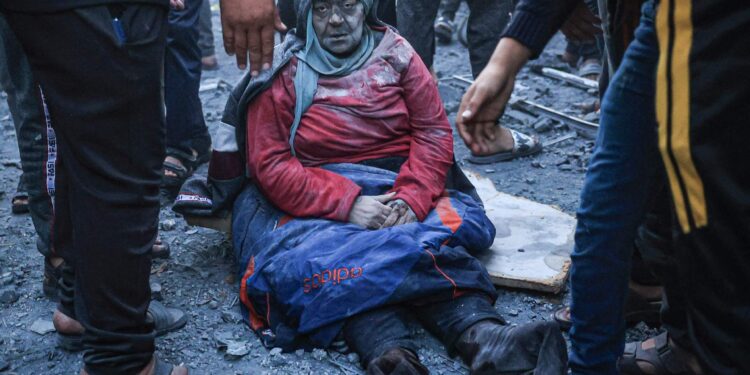“I intended to write about daily life during the truce period, about the challenges of securing water and the fear of rain or the emergence of cloudy weather that prevents solar panels from continuing to produce some electricity, or about searching for any kind of food, or about the smell of shelter schools, or kilometers The queues waiting to fill a cooking gas cylinder, or many other daily challenges, but it was the sound of heavy artillery and shelling that woke me up.”
With this introduction, Haaretz newspaper opened an article written by Amira Hass, in which it conveyed a call from a friend in Gaza after receiving a letter from Bassam Nasser, who was forced with his family to flee from Gaza City to Deir al-Balah, and then to Rafah because of the bombing during the first days of the war. He said: In it, “the most accurate description of what is happening is hell.”
This friend wrote that: When the bombing resumed, hopes were high for extending the truce, and were tinged with optimism about a long-term ceasefire. The decisive guidance came from influential figures often referred to as the “Masters of the Universe,” who urged Israel to exercise restraint during its military operations in the southern Gaza Strip.
These are the same entities that ordered the residents of Gaza to move to what they described as safe areas in the south. They are the ones who called for increasing the distribution of humanitarian aid to the Palestinians in Gaza, and they insist, despite the daily death toll of more than 370 innocent civilians, most of them children, on describing these actions as “self-defense.”
The letter adds, “The only difference between today and 55 days ago is the nature of the mandate. In the beginning, it was unrestricted approval for killing, massacres, destruction, invasion, and siege, but the current mandate allows these measures to continue with the aim of ending before Christmas. It seems that the hypocrites involved want to celebrate without “I am not disturbed by the images of dead Palestinian children.”
Nasser: Please refrain from trying to diagnose my condition. I’m neither post-traumatic nor completely “normal.” Please do not look at me with pity or sympathy (..) Our basic issue is our aspiration for freedom and self-determination. We reject living in captivity, whether in closed places or open-air prisons.
Frustrated and lost
In a letter during the temporary truce, Bassam described people wandering the streets of Rafah like him, looking frustrated, lost, sad and searching for something.
Addressing his friends with backgrounds in psychology and psychiatry, he said, “Please refrain from trying to diagnose my condition. I am neither post-traumatic stress nor completely ‘normal.’ Please do not look at me with pity or sympathy (..) Our basic issue is our aspiration for freedom.” And self-determination. We reject living in captivity, whether in closed places or open-air prisons.”
On the same day, Nasser also wrote longingly about Gaza City, “which may not be the most comfortable or developed city, but it possesses a captivating charm that rivals the most distinguished places. Gaza is distinguished by the generosity, chivalry, and pride of its people… It is a city located on the sea and remains steadfast in the face of storms.” .
On November 2, he wrote, “As someone who was born in Palestine and lived under occupation all my life, I have every right to question why my family, friends, relatives, and neighbors were killed.”
If our fate is determined – Nasser adds – and “if our destiny is to meet martyrdom regardless of our actions or words, and if our graves have already been opened and our shrouds are ready, then there is no objection to enduring thirst and hunger. The international community can continue to deliver its scheduled aid to Gaza.” What we really need are bulldozers that dig for us and bury us in the bowels of our land.”



